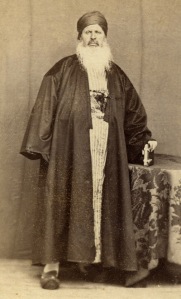July 2, 2010 – The weekend before Memorial Day, Senator John Kerry visited Syrian President Bashar al-Assad in Damascus—his third such trip as chairman of the Senate Foreign Relations Committee and second in as many months. He was there, by all accounts, to defuse tensions and clarify Syria’s response to Israel’s unconfirmed accusations, echoed by the United States, that Syria had delivered Scud missiles to its Lebanese ally Hezbollah.
With past visits by special envoy George Mitchell, Under Secretary of State William Burns and a stream of other officials, the presidential palace has been busily receiving guests at its perch above Damascus—and that’s only the Americans. The French and German foreign ministers were in town the same weekend. Assad has become one of the region’s busiest hosts in the past year, as he maneuvers Syria out of the diplomatic cold by talking to everyone: friends (Iran, Hezbollah, Turkey), enemies (America) and cool neighbors (Saudi Arabia) alike.
High-profile American statesmen may go to Damascus, but not—at least not yet—an ambassador. In early May Senate Republicans blocked a motion to confirm career foreign service officer Robert Ford as the first American envoy in Damascus in five years, since Margaret Scobey was recalled to protest presumed Syrian involvement in the assassination of former Lebanese prime minister Rafik Hariri in 2005. A week later, twelve Republican senators wrote to Secretary of State Hillary Clinton threatening to prevent Ford’s nomination from going to a full vote in the Senate. Their letter warned that “if engagement precludes prompt punitive action in response to egregious behavior, such as the transfer of long-range missiles to a terrorist group, then it is not only a concession but also a reward for such behavior.”
Read the rest of the piece at The Nation.


